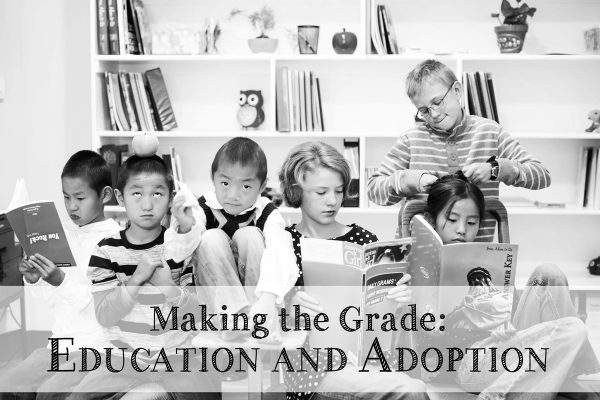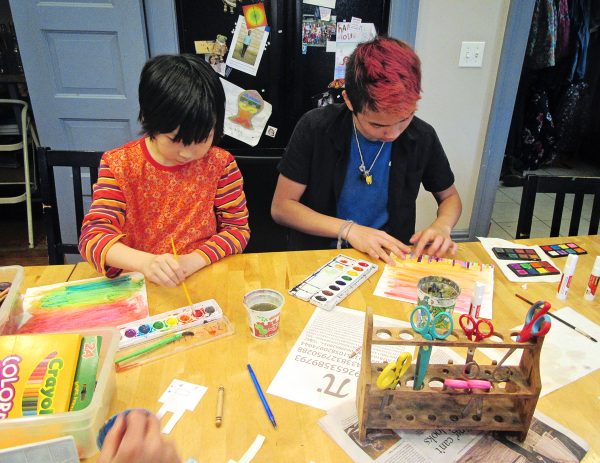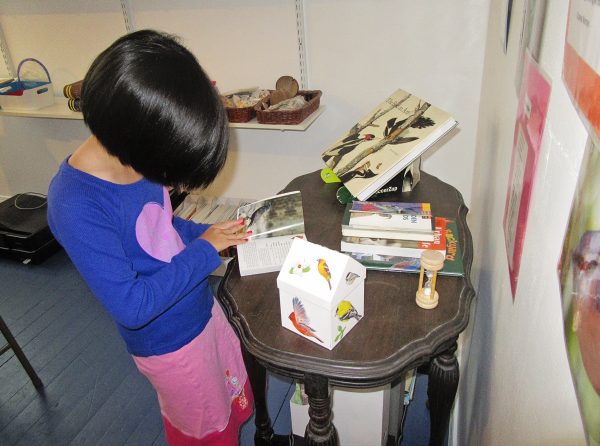
We were homeschoolers before we ever adopted, so homeschooling our adopted children just made sense. That’s the train we were on, so there we stayed.
When we first began homeschooling, it wasn’t so much an intentional decision to homeschool as a realization that we did not want to send our oldest to kindergarten because we were having so much fun together. Besides, how difficult could teaching kindergarten be? (No offense intended to professional kindergarten teachers, of which my father was one.) Nineteen homeschooling years later, I have quite a list of why homeschooling works.
We had the same experience deciding to homeschool our adopted children. It’s what we had done, so it’s what we continued to do. Now, ten years later, I have real reasons why I believe homeschooling is a powerful and viable choice for the education of our adopted children.

1. Homeschooling allows us the time to let our children experience what they missed developmentally.
If you read the early childhood development literature, it quickly becomes apparent that these early years are the building blocks for later learning. Children who have the chance to explore and play in a safe and enriching environment have brains that are primed for later academic learning. It is safe to say that the vast majority of our children missed out on much of these experiences. Just because they can do higher level developmental tasks does not mean that going back and fixing some of the missing intellectual scaffolding is not necessary.
Homeschooling allows us to meet these needs. Instead of worrying about whether our 9-year-old is going to manage at grade level, we can spend time reading stories, looking at bugs, playing in water, building with blocks, and engaging in imaginary play. This does not mean that we ignore where she is academically. She has only been home seven months, and is already reading short words, but that is just a fraction of what we do in a day. At this moment in time, far more time is spent in imaginary play than in doing book work.
2. Homeschooling allows us the time to focus on emotional health.
Many of my adopted children come from hard, hard places, and some are very affected by their past. This trauma can make it difficult for them to focus on the task of learning because their brain is constantly on high alert, sounding the alarm bells at anything that could prove hard or stressful or dangerous. For at least one of my children having to learn anything new, and the possibility of failing at this task, was enough to sound the alarm anytime a school book was opened. Because we could determine what constituted school, we took a year off from academics and focused on feeling safe. Not a lot of math got done that year, but at the end of it, we had a happier and more secure child, who could not only open a textbook without spiraling out of control, but could also ask for help with something he didn’t understand.
Another of my children dealt with a painful past by disassociating the second anything seemed hard or stressful. I’m not sure how much time she actually spent in the present moment during her first year home. We spent of a lot of time working to bring her back every time she would disassociate. School had to be very gentle during those first years. She was afraid to get something wrong. She was afraid to try. Homeschooling let us decide on what was appropriate for her, even if that meant taking two years to be able to identify the number six. That patience paid off. She is not only willing to try, but she can do academic things that we never thought she’d be able to.

3. Homeschooling allows us to ignore grade levels.
I truly hate the question, “What grade are you in?” when it is asked of my children, particularly the adopted ones. It’s just too complicated. I have a nearly 14 year old who is doing solid first grade work. I am thrilled at first grade work because four years ago, we were doing early preschool. I have an 11 year old who isn’t even to preschool work yet, because learning proprioception (where her own body is) and vestibular awareness (how her body moves in space) are her current big learning hurdles. Or how about the 9-year-old who once she conquers English, will very likely be working several grade levels above her age? These are the extremes in my crew of non-traditional learners. A traditional school would be hard pressed to know what to do with them because they don’t fit in standard molds. We don’t have to worry about standard anything with them. If one needs to do 18-month-old work, she can. If one wants to spend the day teaching herself to read English, she can. Homeschooling allows us to meet the academic, physical, and emotional needs of the child and not force the child meet the needs of a predetermined scope and sequence.
4. Homeschooling allows me to be selfish.
That sounds odd, I know, but bear with me. Some of my adopted children joined our family at older ages. We missed so much of their early lives, and the time until they are adults and on their own is pretty short. I don’t want to miss out on any more of their childhood than I have to. I want to spend time with them, to really get to know them, to have fun with them, to enjoy them. By homeschooling them, I don’t have to share the precious time I have left. I get to help them meet new challenges, to share their successes, and be there to comfort them when things are hard.

Is homeschooling for everyone? No, of course not. Is it the best choice? Not always. Just the same as traditional schooling isn’t for everyone and isn’t always the best choice for a child. But homeschooling is a viable option and one that can help a child reach his or her full potential.
Elizabeth Curry writes at Adoption.com. You can read more on her blog, find her on Facebook, and contact her by email here.

























Yes! This is encouraging to read and also some of your stories about your students are completely true of one of mine! Thanks for doing such a great job of putting it all into words and sharing.